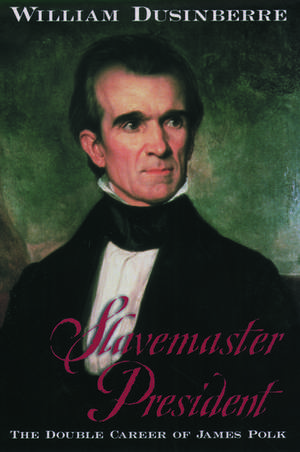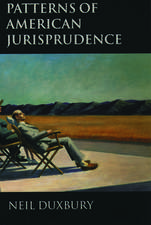Slavemaster President: The Double Career of James Polk
Autor William Dusinberreen Limba Engleză Hardback – 15 mai 2003
| Toate formatele și edițiile | Preț | Express |
|---|---|---|
| Paperback (1) | 167.24 lei 31-37 zile | |
| Oxford University Press – 21 feb 2008 | 167.24 lei 31-37 zile | |
| Hardback (1) | 255.62 lei 31-37 zile | |
| Oxford University Press – 15 mai 2003 | 255.62 lei 31-37 zile |
Preț: 255.62 lei
Preț vechi: 299.00 lei
-15% Nou
Puncte Express: 383
Preț estimativ în valută:
48.91€ • 51.21$ • 40.47£
48.91€ • 51.21$ • 40.47£
Carte tipărită la comandă
Livrare economică 25-31 martie
Preluare comenzi: 021 569.72.76
Specificații
ISBN-13: 9780195157352
ISBN-10: 0195157354
Pagini: 272
Ilustrații: 3 halftones, 2 maps and numerous tables
Dimensiuni: 241 x 164 x 23 mm
Greutate: 0.53 kg
Editura: Oxford University Press
Colecția OUP USA
Locul publicării:New York, United States
ISBN-10: 0195157354
Pagini: 272
Ilustrații: 3 halftones, 2 maps and numerous tables
Dimensiuni: 241 x 164 x 23 mm
Greutate: 0.53 kg
Editura: Oxford University Press
Colecția OUP USA
Locul publicării:New York, United States
Recenzii
A good look at the very hard, often harsh, conditions on a new plantation in a frontier area.
This is a striking and important book. James K. Polk tried to keep his activities as a slaveowner and absentee planter separate from his public life as a politician and, eventually, president. William Dusinberre brings the two sides of Polk's career together again. He has done more than anyone else to examine the lives of Polk's slaves, and reveals often-disturbing evidence about the harshness of their conditions. He also shows how Polk's perspectives as a planter shaped his administration's expansionist policies. This will be essential reading for all interested in the debate on slavery and the origins of the Civil War.
Slavemaster President is a powerful combination of careful research, clear prose, and controlled passion. At the core of the book is a meticulous reconstruction of James Knox Polk's cotton plantation. But Dusinberre is after much bigger analytical fish than a single case study would suggest: he uses Polk as a launching pad for a full-scale reinterpretation of the antebellum South. In so doing, he reintegrates the social and political history of southern slave society, bringing us closer than ever to understanding precisely how the politics of slavery led ultimately to Civil War.
No other study that I can think of juxtaposes so revealingly the personal experiences of the enslaved with those of their enslaver, or the career of a slaveholder with the leadership of a president. By bringing to life the world of the enslaved people for whom James K. Polk was responsible even as Polk himself became responsible for slavery's westward expansion, Dusinberre presents a truly original synthesis of biography and social history that challenges us to reexamine the politics of the sectional conflict.
This is a striking and important book. James K. Polk tried to keep his activities as a slaveowner and absentee planter separate from his public life as a politician and, eventually, president. William Dusinberre brings the two sides of Polk's career together again. He has done more than anyone else to examine the lives of Polk's slaves, and reveals often-disturbing evidence about the harshness of their conditions. He also shows how Polk's perspectives as a planter shaped his administration's expansionist policies. This will be essential reading for all interested in the debate on slavery and the origins of the Civil War.
Slavemaster President is a powerful combination of careful research, clear prose, and controlled passion. At the core of the book is a meticulous reconstruction of James Knox Polk's cotton plantation. But Dusinberre is after much bigger analytical fish than a single case study would suggest: he uses Polk as a launching pad for a full-scale reinterpretation of the antebellum South. In so doing, he reintegrates the social and political history of southern slave society, bringing us closer than ever to understanding precisely how the politics of slavery led ultimately to Civil War.
No other study that I can think of juxtaposes so revealingly the personal experiences of the enslaved with those of their enslaver, or the career of a slaveholder with the leadership of a president. By bringing to life the world of the enslaved people for whom James K. Polk was responsible even as Polk himself became responsible for slavery's westward expansion, Dusinberre presents a truly original synthesis of biography and social history that challenges us to reexamine the politics of the sectional conflict.
Notă biografică
William Dusinberre is author of the award-winning Them Dark Days: Slavery in the American Rice Swamps.









